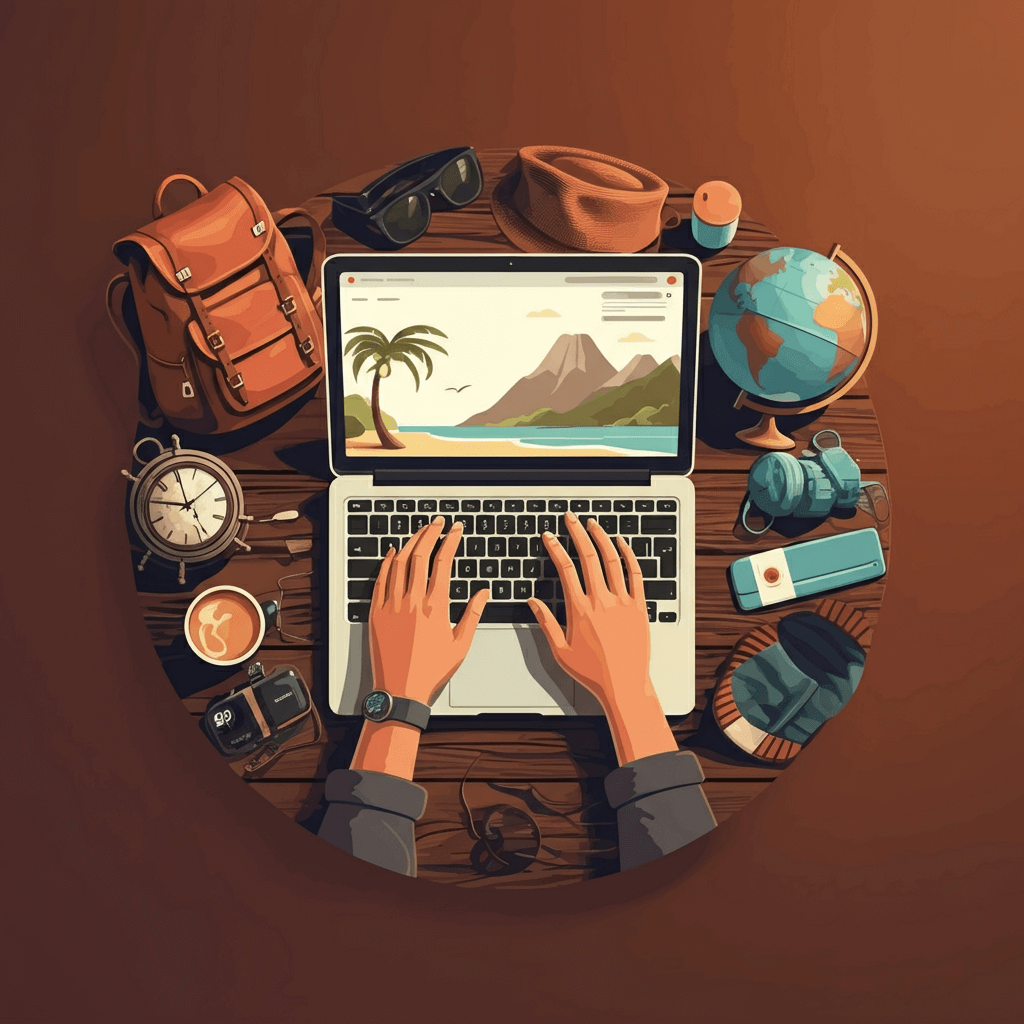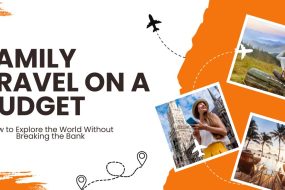
In a world where remote work is no longer a luxury but a viable lifestyle choice, thousands of professionals are trading cubicles for co-working spaces, all while exploring the globe. This comprehensive guide will walk you through everything you need to know to become a successful digital nomad in 2025—from planning and budgeting to staying connected and finding community abroad.
What is a Digital Nomad?
At its core, a digital nomad is someone who leverages technology to work remotely and live a location-independent lifestyle. Instead of reporting to a traditional office, digital nomads carry their work with them on laptops or tablets, choosing their destinations based on personal interests, cost of living, and quality of life. This lifestyle blend of work and travel offers unparalleled freedom and flexibility but also requires discipline, planning, and adaptability.

Why Travel as a Digital Nomad in 2025?
The rise of flexible work policies, improved global connectivity, and an expanding network of co-working hubs makes 2025 an ideal time to embrace the digital nomad lifestyle. Post-pandemic shifts have led to more remote-friendly companies, while innovative visa programs cater specifically to long-term travelers. You can explore new cultures, avoid burnout through a change of scenery, and build a global network—all without sacrificing your career growth.
Planning Your Journey
Before you book your first flight, take time to establish clear goals and evaluate your work requirements. Start by auditing your current role—do you need a stable 9-to-5 schedule, or can you adapt tasks around different time zones? Draft a budget that accounts for accommodation, transportation, food, and entertainment, plus a safety cushion for emergencies. Research visa rules, health insurance options, and any tax implications in your home country and your target destinations. Create a tentative itinerary but allow room for spontaneous detours and local discoveries.
Choosing the Right Destinations
Selecting where to go is more than just picking a pretty spot on the map. Evaluate each destination based on cost of living, quality of internet, safety, and local community for expats and nomads. Cities like Lisbon, Chiang Mai, and Medellín continue to rank high for affordability and connectivity. Meanwhile, countries such as Georgia and Estonia have launched digital nomad visas that simplify long-term stays. Think about climate preferences and time zone overlap with clients or team members. Balancing these factors will ensure you land in a place where work and play seamlessly integrate.
Accommodation and Co-living Spaces
Finding the right place to stay can make or break your nomad experience. Traditional rentals through Airbnb or Booking.com are popular, but co-living spaces offer built-in communities, networking opportunities, and often include utilities and coworking facilities. Look for properties with reliable internet, ergonomic workstations, and communal events. Consider short-term leases or platforms that cater to digital nomads, giving you the flexibility to move on if a location doesn’t fit your needs.
Managing Finances on the Road
Effective financial management is critical when your office and home keep changing. Maintain a separate bank account or digital wallet for travel expenses to simplify budgeting. Use apps to track spending in multiple currencies and set alerts for unusual transactions. Research the best travel-friendly credit cards to minimize foreign transaction fees and maximize rewards. Keep an emergency fund equivalent to at least three months of expenses and explore local cost-saving tactics such as street food markets or subscription-based coworking passes.

Staying Connected: Internet & Tech Gear
Reliable internet is your lifeline as a digital nomad. Always verify the upload and download speeds of your accommodation before booking. Consider portable hotspots or local SIM cards with generous data packages. Equip yourself with noise-canceling headphones, a lightweight laptop stand, and a quality webcam to maintain professional calls. Backup solutions like SSD drives or cloud storage services will keep your work safe. Carry universal adapters for different power outlets and invest in surge protectors to guard against voltage spikes.
Balancing Work and Exploration
One of the greatest challenges of nomadic life is preventing work from encroaching on your wanderlust—and vice versa. Establish a daily routine that aligns with your peak productivity hours, carving out blocks for focused work and designated breaks for local exploration. Use time management techniques such as the Pomodoro method to maintain momentum. Communicate your schedule clearly with clients or team members to set realistic expectations about availability and response times.

Cultural Immersion and Community
Dive beyond tourist attractions to truly experience each locale. Learn basic phrases in the local language, attend cultural events, and sample regional cuisines. Join digital nomad meetups or coworking-hosted activities to connect with like-minded travelers and potential collaborators. Volunteering or short courses can provide deeper insights into local customs, fostering meaningful connections and enriching your journey.
Safety and Health Tips
Your well-being should always be a top priority. Register with your embassy upon arrival, carry digital and physical copies of important documents, and purchase comprehensive travel insurance covering health emergencies and trip interruptions. Stay informed about local laws and customs to avoid inadvertent issues. Maintain a healthy lifestyle by prioritizing sleep, exercise, and a balanced diet—even if it means swapping hostel life for a few nights in a hotel to reset your routine.
Top 10 Digital Nomad Destinations for 2025
- Lisbon, Portugal: Sunny weather, affordable living, thriving tech scene, and a vibrant nomad community.
- Chiang Mai, Thailand: Low cost of living, excellent coworking spaces, and rich cultural heritage.
- Medellín, Colombia: Pleasant climate year-round, welcoming locals, and high-speed internet.
- Tbilisi, Georgia: Generous visa policies, unique cuisine, and budget-friendly lifestyle.
- Tallinn, Estonia: Pioneer of digital nomad visas, seamless e-government services, and historic charm.
- Bali, Indonesia: Island paradise, diverse coworking hubs, and holistic wellness retreats.
- Barcelona, Spain: Mediterranean lifestyle, architectural wonders, and robust startup ecosystem.
- Budapest, Hungary: Thermal baths, dynamic nightlife, and accessible living costs.
- Mexico City, Mexico: Culinary hub, cultural vibrancy, and growing coworking networks.
- Prague, Czech Republic: Fairytale architecture, strategic location in Europe, and reliable infrastructure.
Conclusion
Becoming a digital nomad in 2025 is more achievable than ever thanks to technological advancements, supportive visa programs, and an expansive global community. With careful planning, financial discipline, and an open mind to cultural experiences, you can build a fulfilling lifestyle that harmonizes work and travel. Embrace the journey, stay adaptable, and let each new destination inspire your professional and personal growth.

















No Comments